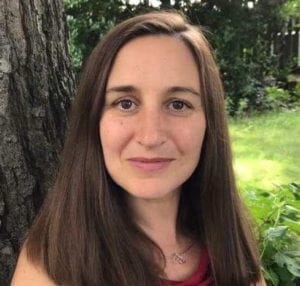Dissociation & Addiction Resources
The Institute for Creative Mindfulness training program and approach is distinctively different because of our willingness to openly and candidly address both dissociation and addiction throughout the training process. Founder Dr. Jamie Marich is in long-term recovery from both addiction and a clinically significant dissociative disorder and has been very open about her journey. Dr. Jamie is currently working on a model with ICM team member Adam O’Brien making a case for the inextricable link between dissociation and addiction and that addiction can be conceptualized as dissociation. All Institute for Creative Mindfulness team members are selected for their sensitivity to address complex trauma and the intricacies of working with both dissociation and addiction. On this page, we’ve gathered some of our best resources in the area of articles, videos, and interviews to help our own trainees and all EMDR therapists.
Advanced Certificate in Dissociation Studies for EMDR Therapists
The Power of Process in Healing Dissociation & Trauma
While we are happy to provide you with these complimentary resources from Dr. Jamie and her team members, if you would like to learn more about Dr. Jamie's integrated approach to working with dissociation, and you are in needs of EMDRIA Advanced Topics Credits, check out her core course, "The Power of Process in Healing Trauma and Dissociation."
Articles & Interviews
From the ICM Redefine Therapy Blog

Thank You… TikTok?
Several days before the stunt of TikTok going dark for 12 hours in the United States, many creators posted content in the vein of, farewell,

Does AA Work?
A program called Open to Debate recently invited me to debate the topic of whether or not Alcoholics Anonymous (AA), as a program of recovery,

What Does Case Conceptualization Mean, Really?
In online EMDR Therapy networking groups, people often post the question, “What EMDR protocol should I use for [insert population or condition]?” I am that

Experiences with EMDR as a survivor of ritual abuse
I did not start EMDR as a survivor of RAMCOA (ritual abuse, mind control and organised abuse). Rather, EMDR was an intervention that facilitated the

Out From Hiding
(CONTENT WARNING: This contains personal recollections of childhood sexual abuse, fat shaming, and eating disorders.) A few years ago, I decided it was time for

A Lullaby for Jason
I’ve written several pieces inspired by my friend Jason Fair on this blog. You can check out Merry Christmas, Jason, published just two weeks after

EMDR Therapists with Lived Experience of Dissociation and/or Plurality Speak
One of the reasons that I/we decided to come out in the EMDR community as a person with a dissociative system (having been formally diagnosed

Imaginary Friends
When we are called imaginary, we reappear. When we are called real, we disappear. When no one arrives, we appear. When no one calls, a

Freedom is What You Do With What Has Been Done To You
As I share this reflection with the world on my twenty-second sobriety birthday, I recognize that many folks in the trauma recovery movement may take

Lived Experience as a Therapist with Dissociative Identities
As someone with dissociative identities, I have found trying to access support and gain understanding about myself a real challenge. The word dissociation was used

The Capacity to Be Honest
Dr. Jamie Marich explores their journey through addiction recovery and trauma treatment, emphasizing the transformative power of honesty in confronting societal stigmas, challenging clinical norms, and advocating for authenticity and inclusivity in trauma care.

Being Myselves
“Nice to meet you, what’s your name?” “Hi, I’m . . . uh . . . Le . . .I mean Ky . . .uh
Redefine Therapy Website
External Links
- Myths About Dissociation and DID: The TikTok Series, December 2022
- Let’s Talk EMDR: EMDR Therapy and Dissociative Disorders with Dr. Jamie Marich, October 2022
- Navigating Dissociation: Therapists, Know Thyself!, Dr. Jamie Marich, October 2022
- Let’s Talk EMDR: EMDR Therapy, Addictions and Mindfulness, EMDRIA Podcast episode with Dr. Stephen Dansiger, September 2022
- Ep 47: Dissociation is a Superpower: Reducing Stigma with Dr. Jamie Marich
- Dr. Jamie Marich Interview on Systems Speak Podcast, March 2021 (Link opens Spotify)
- YouTube Video Interview: Dr. Jamie Marich talks about EMDR & Dissociation, March 2021
- How “Ratched” Portrays Dissociative Identity Disorder is Wrong by Dr. Jamie Marich, The Mighty, October 2020
- Trauma and the 12 Steps: Revised and Expanded Edition– Interviews with Dr. Jamie Marich (2020)
- Interview on the Podcast Therapy Reimagined: Dr. Jamie Marich on Dissociation in Therapy, March 2020
- One Day at a Time, Addiction Professional, March 2020
- Frontiers in Addiction: Trauma and Mindfulness, November 19, 2019
- You Can’t Shut Down Trauma, Addiction Professional, August 2019
- EMDR Therapy and Addiction: The New Frontier (Stephen Dansiger), Counselor Magazine, Marich 2019
- Interview in EMDRIA’s Go With That Magazine Dissociation: Sharing From a Personal Place, May 2019
- Demystifying Dissociation: A Clinician’s Guide (with Adam O’Brien), Addiction Professional, December 2018
- A Personal (and Professional) Take on Dissociative Disorders, The Mighty, December 2018
- Dr. Steve Returns to the “WTF with Marc Maron” Podcast!, December 2017
These collections constitute the mostly widely read articles by Dr. Jamie Marich and her collaborators available online on the subject of dissociation and trauma. We are not able to share peer-reviewed articles here due to copyright although please feel free to contact our office if you have questions about these.
Addiction & Dissociation video Resources
Trauma-Informed Grounding, Mindfulness, & Yoga Resources
"The wound is the place where the light enters you." -Rumi
PDFs and Media for Download
The Evolving Landscape of Healing Addiction with EMDR Therapy
Article by Jamie Marich, Ph.D., LPCC-S, REAT, RYT-500
Greatest Hits List of Addiction Specific Beliefs
"Another resource I have developed is a list of common addiction-specific negative cognitions (see “The Greatest Hits List of Addiction-Specific Beliefs”). This list closely parallels the list of general negative cognitions that appeared in Chapter 6. You can use the addiction-specific list in a similar way. When a client is near to or in the reintegration stage (consensus model), have him or her check off which beliefs may still apply, then prepare the client for an EMDR session to clear out that potentially roadblocking belief (e.g., “My addiction is my identity”; “Sex/Alcohol is my most important need”). This approach can work with deeply ingrained addiction-specific beliefs and with relatively minor problems that could develop into major sticking points."
Dissociation Infographic
The Institute for Creative Mindfulness believes that no two cases are the same related to using EMDR therapy with clinically significant dissociation. These infographics, prepared by Dr. Jamie Marich, are simply meant to be a guide as you conceptualize cases. If you are finding yourself stuck, please seek consultation on how to best implement what you are learning










